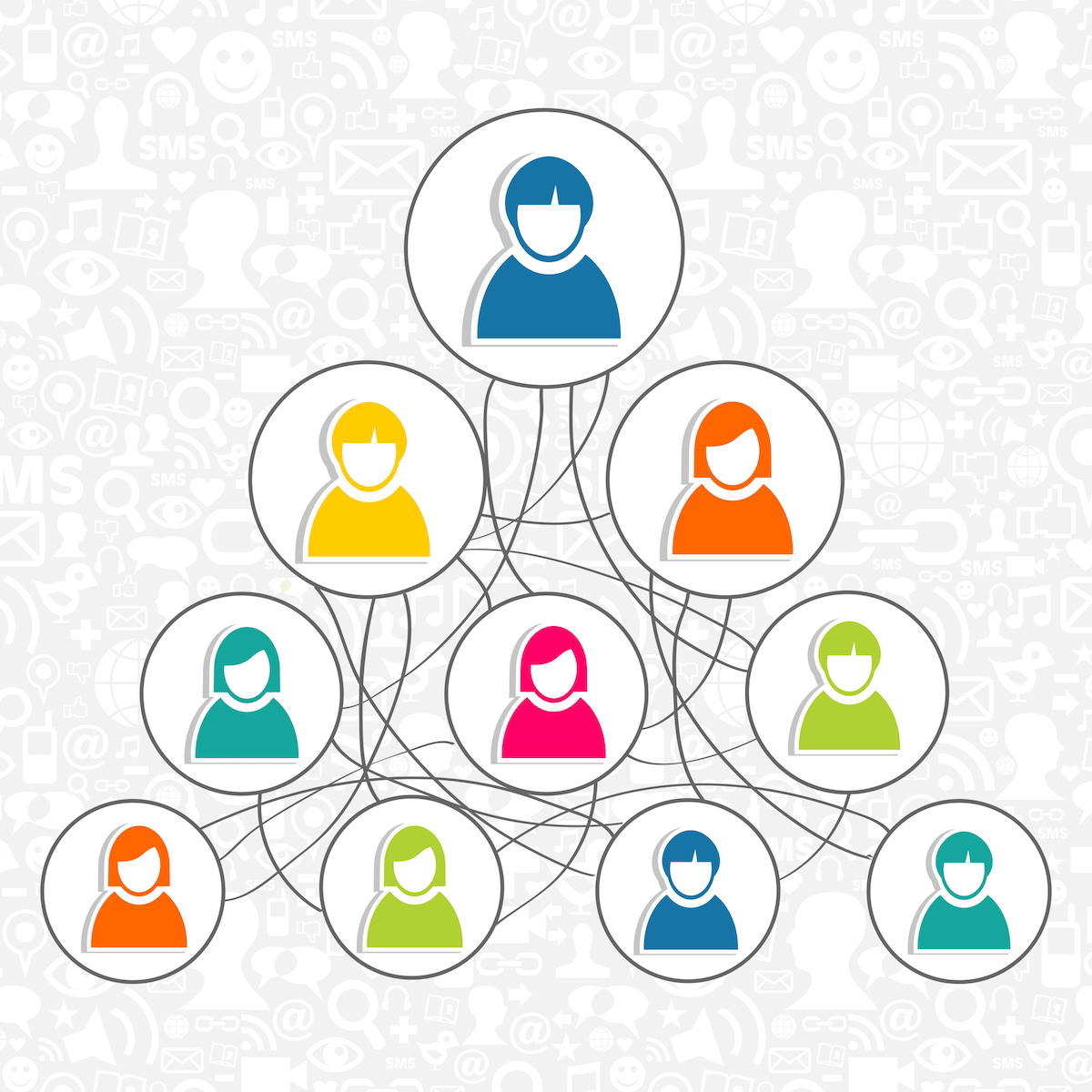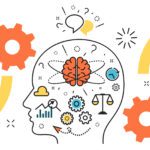By: Tom Hilton | Posted: April 30, 2020 | Updated: April 5, 2023
In this first of a series of articles, I start by just describing my Internet-enabled life. In other parts of the series, we offer essays describing a myriad of ways the Internet can enrich your day. I want to get you “hooked” to the Internet.
Here is what I think:
Technological devices not only can enhance our ability to cope with changes caused by aging, but actually help us thrive socially and intellectually as we age.
Things Change as We Age. We Need to Adapt.
As a psychologist, I know that research shows most of us take for granted our health and mobility despite knowing that both deteriorate with age. (1) Even if we want to remain socially active, over time arthritis, stroke, blood pressure, etc., will begin to constrain our mobility and isolate us.
Coincident with aging, relocations also separate us from our old friends and loved ones. (2)
Relocation (ours or those of significant others) has especially been shown to increase feelings of loneliness. (3) When we feel lonely, we become more socially withdrawn and sedentary which nearly always leads to depression and other mental health problems. As a consequence, loneliness not only has the potential to markedly decrease life satisfaction and feelings of well-being, but it also often causes physical, cognitive, and mental health to deteriorate. (4-7)
Regardless of our plans right now, we too will very likely relocate after retirement perhaps to downsize our homes, enjoy a warmer climate, or because eventually, we will need custodial support. My late parents relocated 150 miles away after they retired. Mom moved twice more as 2 subsequent spouses passed away and finally when she and her third spouse entered assisted living.
To add to the impact of relocations as we age, our children are likely to relocate too. The proverbial apple might not fall far from the tree, but that can change when a promotion or great job offer requires moving to a different state.
Technology to the Rescue.
Technological devices not only can enhance our ability to cope with changes caused by aging, but actually help us thrive socially and intellectually as we age.
This segment focuses on what that laptop or PC sitting around in your house or apartment can do to enhance your life and help make loneliness and feelings of isolation a thing of the past.
Your Internet browser is a magic carpet that can transport you to new worlds that span the globe where you might make new friends, learn new things, travel the world, even go shopping, without leaving home.
That smartphone you likely have in your pocket or purse is a computer too. Like your PC, it is a tool that can enable intimate chats, even video chats, with grandkids, adult children, and old friends living thousands of miles away.
This section of Tech-enhanced Life will help you learn enough about computers to exploit them in ways that can keep you so engaged most days that you might begin to view it as indispensable.
I want to start by just describing my Internet-enabled life. In the later parts of this series, I will offer essays describing a myriad of ways the Internet can enrich your day. I want to get you “hooked” to the Internet.
Preface & Coming Attractions
You will notice that I repeat myself from segment to segment. It is not that I am getting senile, but there are a lot of terms and abbreviations to learn as you master your PC to augment your Internet-enabled life.
Psychologists have discovered that repetition, especially in a learning context (which I hope this is) helps us to more permanently connect the proverbial dots that back recognition and recall easier.
This is especially true for we elderly folks because there is already so much stuff in our brains that searching gets harder as we age. When you think about it, learning is just re-arranging information so that it a) makes more sense (becomes knowledge), and b) is easier to retrieve in contexts requiring that knowledge. I almost always spell out a term in each segment followed by its common abbreviation or acronym in parentheses. That way, you can use your search tools to quickly find what an abbreviation stands for if you forget. Every time you search, that action itself will help you remember the next time.
Well, how the heck do you search for a term or word you forgot on a webpage or digital document?
SIMPLE! Simultaneously press the CTRL key along with the letter “f” for find. That usually opens a little search window on the page, or it puts your mouse cursor in a search box in the upper right-hand corner of your application (or app for short). Then just type what it is you want to search for. Remember: CTRL+ f is all you need. Go ahead. Try it!
Segments
Here are the segments you can read right now.
- My PC and Me: A Quick Peek at My Internet-Enabled Life
- Computers and Me, Since 1968!
- How to find Whatsername after all these years
- The Internet
- The Email
- Magic Carpet Apps for That: Traveling the Globe Without Leaving Your Desk
- Surf the Web Like a Pro
Coming Attractions
Here are things I plan to add in due course. If you want to be sure to hear about them, “follow” this post (see the “Subscribe” link right down the bottom of the page, [you need to be logged in]).
- How computers work
- What to do when your computer does not work
- Smartphones are PCs too
- How to download and install programs and applications
- Whattheheck is a pdf anyway?
- How to manage downloaded files – Library vs Fibber Mcgee’s Closet.
- Internet Browsers – what is right for me?
- Browser bookmarks and extension applications
- How to download books for free – or at least cheap
- How to shop for stuff delivered to your door
- Should I get a printer, and if so which one?
- When your laptop is running out of storage: Flash Drives
- Using your smartphone as a modem for your laptop or PC
- Using your laptop overseas
- How to convert old slides and Polaroids into digital computer pictures – And how to make them look better than ever
My PC and Me: A Quick Peek at My Internet-Enabled Life
Emails and Bills
Most mornings I get up and have coffee in front of my PC.
I start by scanning my email. I have 5 email accounts, but they all flow into my Gmail inbox. Usually, there are 25 or so waiting. Five or six I can usually delete as not worth opening – digital junk mail.
The first email I elected to read today was from a Public Health journal asking me to review an article to help determine if it is suitable for publication – peer review. I downloaded it and set it aside.
Then there were several emails from old high-school buddies – those get full attention and windy replies.
Several items are newsletters that keep me aware of news in politics, medicine and psychology, and my new post-retirement interest – economics.
One email alerted me to a credit card balance for the week, another told me to download and pay one of my VISA cards, yet another told me to download my monthly mutual fund statement.
Of course, being a retired Navy captain, I get regular updates on the Navy and DOD generally from military officer societies and the Army/Navy Club in DC. As a disabled vet, I also get weekly stuff from the VA.
There might be a medical bill, a legal bill, or a bill from my lawn service, plumber, etc. When I get those, I download the invoice to folder on my PC under FINANCES and put it in one of the subfolders like VISACARD, MAINTENANCE, UTILITIES, etc. Next, I open the credit union account where I do most of my checking, click the Bill-Pay tab, and direct them to send a check for a set amount to whomever needs payment.
Most recurring bills — like for utilities and services like the pool boy, burglar alarm monitoring service, etc — I have set up to be paid automatically. The service provider merely bills my checking account.
After I have cleared my email, I head for the bathroom to get ready for the day.
Some Shopping
After half an hour, I get dressed and empty the postal mail (aka snailmail).
It has been chillier than normal this winter, and we had guests from DC coming. We really needed a firepit for the back porch to sit by the pool evenings and gab.
So, I went to the Amazon.com website, looked at what was available, and shared pictures of 3 reasonable options with my spouse. We picked one and ordered it. Within minutes an email popped up to tell me it will arrive in 4 days.
We use Amazon for all sorts of purchases, including books, kitchen utensils, replacement appliances, lots of stuff that would take several trips to various malls to shop for, but we can shop from home, and they deliver to our front door.
Staying Up-to-date on the News
After our online purchase, I started scanning my Really Simple Syndication (RSS) news feeds which I keep on my igHome.com page.
I programed my browser (Google Chrome) to open my igHome page, email, calendar, Facebook, and Twitter when I first open it, so my RSS feeds were already waiting for me (I’ll show you how to do that in the future).
My first RSS list is Nakedcapitalism.com which provides annotated links to stories, on websites and blogs, even some .pdf (8) versions of essays.
igHome enables me to get up to speed on global news in about half an hour. I installed “gadgets” for 24 news and information sites that list scrollable headlines from AP, Reuters, BBC, CNN, PBS, NPR, CoolTools, TruthDig, New York Times, Washington Post, etc. I scan the headlines and open interesting links by clicking the headline hyperlinks (9) which open any story that looks interesting on a new browser tab.
Some links I copy and email, or repost on Twitter and/or Facebook for friends to see and comment on. Others get read, deleted, converted to a pdf file. I achieve pdf conversion using a handy Google Chrome extension app called PrintFriendly that presents a draft that allows me to delete any advertising or other clutter before converting the page to a .pdf file that I can archive for future reference in a new book or article.
Then it is lunchtime.
Interacting with Friends
After lunch, I might take a swim, go shopping, etc.
Once back home I clear out my social media posts on Facebook and Twitter.
Facebook is a great way to meet strangers with similar or just interesting views. I met my 88-year-old friend John in the UK because he often commented on the articles posted on a mutual friend’s website – a young Cambridge doctoral student. We exchanged emails via Facebook Messenger, and quickly became friends. John is one of the most interesting people I know. He has had a fascinating life. If it was not for the Internet and social media, we very likely would never have crossed paths. Once COVID19 is over and we can travel to our house in Bulgaria, we plan to stop off in London to visit John and his wife for a few days.
Some Work
Once my social media updates me on friends’ posts, I open up whatever I am working on that day.
It might be scoring written grant applications for NIH, working on a new journal article I intend to submit, surfing the Internet for research articles on a topic I am interested in writing about, making editorial changes on a book-in-progress, or I might just go sit down and read a few chapters of a recently downloaded or purchased hardcopy book.
I might even take that book and walk on the beach.
Evening Entertainment
When my spouse and I sit down to dinner, we usually watch the PBS NewsHour to watch topical interviews, discussions, and on-site video reports of the day’s global news.
I just use Chrome to go to the PBS News Hour website and click on the latest broadcast at whatever time we sit down to dinner — often after 8PM. We use our TV for that and stream the program via our entertainment system computer which is connected to our home Wi-Fi router.
Back in 2018, we canceled Cable TV, as it is cheaper to subscribe to a few streaming services and we get higher-quality content than the junk ABC, NBC, and CBS have to offer (Okay, we remain NBC “The Blacklist” addicts).
Around midnight, we head for bed.
Planning for Tomorrow
Tomorrow, I promised one of my old friends, Liz, who still lives in the DC Metro area, that I would call for one of our biweekly two-hour gabfests.
Because I now wear Bluetooth enabled hearing aids, when she calls, I do not even have to touch the phone unless I want to see who is calling. Liz has to use the speakerphone function on her end. Oh yes, I failed to mention that any sites I open on my computer that includes video, I also hear the audio portion directly on my hearing aids. Wow!
Well, that’s it for my Internet-enabled day.
While it only skimmed the surface of what my PC does for me, I hope it piqued your curiosity enough to come back to this section again and learn how you can use that PC of yours to get out of the house/apartment, explore the world, chat with old friends, and even meet and make new ones.
References
(1) Gilick, MR (2007). The Denial of Aging. Harvard University Press; Cambridge, MA.
(2) Eshbaugh EM (2009).The role of friends in predicting loneliness among older women living alone. J Gerontol Nurs. May; 35(5):13-6.
(3) Hodgson N, Freedman VA, Granger DA, & Erno A (2004). Biobehavioral correlates of relocation in the frail elderly: salivary cortisol, affect, and cognitive function. J Am Geriatr Soc. 2004 Nov; 52(11):1856-62.
(4) Bekhet AK & Zauszniewski, JZ (2012). Mental health of elders in retirement communities: Is loneliness a key factor? Arch Psychiatr Nurs. Jun; 26(3): 214–224.
(5) Bekhet AK, Zauszniewski JA, & Nakhla WE (2008). Loneliness: a concept analysis. Nurs Forum. Oct-Dec; 43(4):207-13.
(6) Tiikkainen P & Heikkinen RL (2005). Associations between loneliness, depressive symptoms and perceived togetherness in older people. Aging Ment Health. Nov; 9(6):526-34.
(7) National Academy of Sciences (2020). Social Isolation and Loneliness in Older Adults Opportunities for The Health Care System. National Academy Press, Washington DC.
(8) PDF stands for portable data format initially developed by Adobe company and is appended to any files with a .pdf extension similar to .docx for Microsoft Word documents. PDFs are like photos of every page of a document, like a magazine page. The can include photos, graphs, etc. as well as text, and, all text is searchable. My professional reference library of PDFs included close to 10,000 books and journal articles.
(9) Hyperlinks are normally indicated by the titles being both underlined and a unique color – most often blue.
*Disclosure: The research and opinions in this article are those of the author, and may or may not reflect the official views of Tech-enhanced Life.
If you use the links on this website when you buy products we write about, we may earn commissions from qualifying purchases as an Amazon Associate or other affiliate program participant. This does not affect the price you pay. We use the (modest) income to help fund our research.
In some cases, when we evaluate products and services, we ask the vendor to loan us the products we review (so we don’t need to buy them). Beyond the above, Tech-enhanced Life has no financial interest in any products or services discussed here, and this article is not sponsored by the vendor or any third party. See How we Fund our Work.


